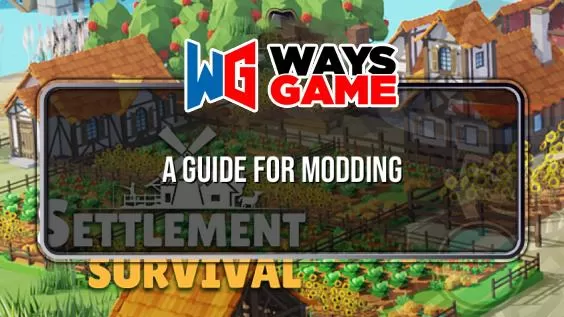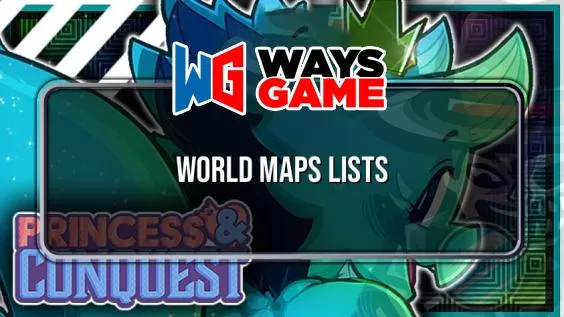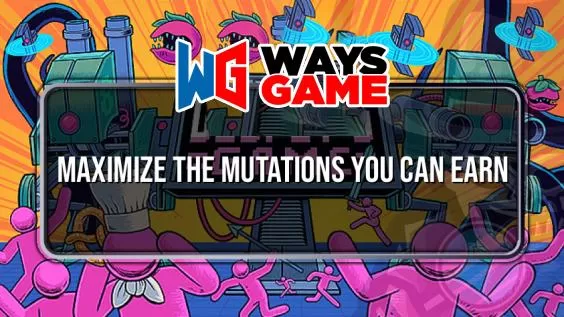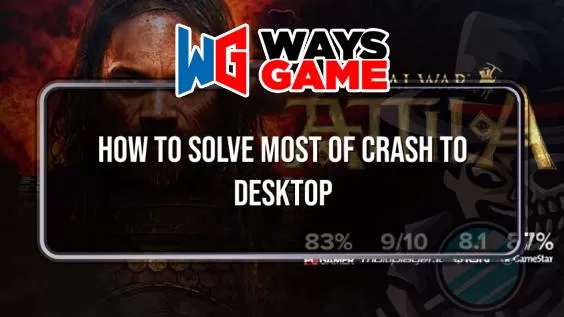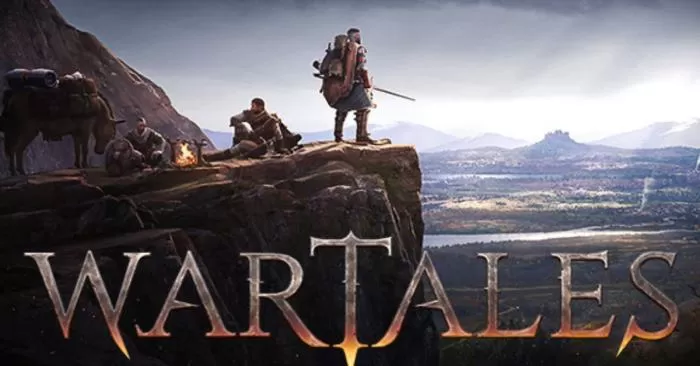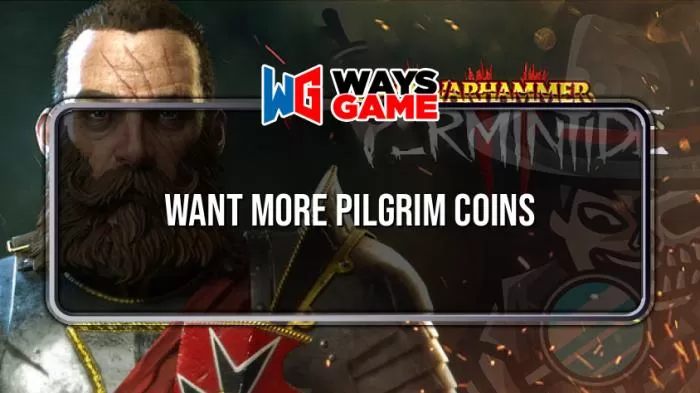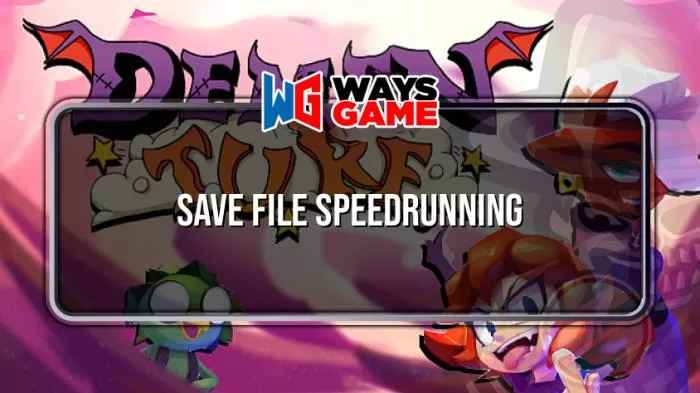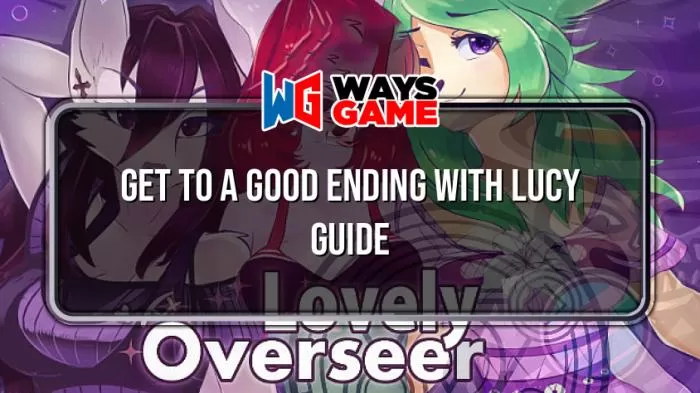A primer on the basic mechanics and fundamentals.
Introduction
Last Update: 2022-08-09
Wartales focuses on survival, exploration and making both strategic and tactical choices.
Players will have to feed their recruits and pay them. Exploration and speaking with characters are the best ways to unlock new locations, professions and recipes. Tinkerer is the only possible profession at the start. The first time you see items in a container you can choose to steal them. Clicking “Steal”, unlocks your Thief profession. You will later gain Knowledge points. You can spend it on new cooking recipes or pa*sive special abilities.
It is also important to choose the right equipment. A two-handed weapon is better for sword and axe users. The latter deals more damage and can deal additional damage in areas, but it can also cause damage to your allies if you’re caught in a suboptimal situation. There’s also no way to make your attack single-target.
The game is intentionally opaque. While there are goals, the game has no clear “end” at all. Survival and navigation through an unknown land are two of the game’s main themes.
This guide does not attempt to change those philosophies. Instead, it aims to explain concepts and game mechanisms so that players can find the enjoyment in the game.
Start a New Game
Three questions are asked at you start of the game.
- The first question determines the initial roster of characters and bonuses. This choice is the same regardless of whether individual characters have different skills or equipment.
- The second question will determine a global bonus specific to your playthrough. This choice is always the exact same.
- The third question determines your playthrough’s global penalty.
The next step is to be taken to the menu which will indicate the following:
- Start Region
- Difficulty (Combat).
- Simulation of Difficulty
- Mode Save
- Exploration
This is a key decision that will impact your playthrough. Make sure to carefully consider your options.
Region of Origin
Tiltren County should be your only option when you start the game. This is an excellent choice for new players because it is likely to be an “easy” region that provides all the basic necessities.
In subsequent playthroughs, you will find other starting areas. Each region has unique changes that make them stand out from other regions. They are therefore not always beginner-friendly. Vertruse, however, lacks an Apothecary, Ancient Ruins, and features an Arena as well as two taverns.
Difficulty/Combat
This is all about combat and will determine the bonus stats you receive from the enemies you face.
You can modify this setting to help combat problems. Exploration (which we will explain below).
Simulation of Difficulty
You will need to balance three factors during the game
- Tiredness
- Hunger
- Wages
This setting affects the rate at which variables accumulate.
You can change this setting if your combat skills are good but you find it difficult to pay the “upkeep” fees.
Save Mode
Wartales is a survival game. Its default Save Mode attempts to capture this atmosphere. You have several options:
- Normal (you only need one save)
- You can save multiple times.
- Ironmen (basically, it’s impossible to reload).
Exploration
Wartales’ default setting is Free Exploration. This means your party size and enemy levels match your party (e.g. level-scaling).
This allows you to defeat enemies without having to grind. In the late game, it is easy to find the appropriate level gear since you can fight anyone.
The disadvantage is that novice players might find it difficult to win every fight and may never feel “powerful”.
Region-Locked can be an alternative. This is more like traditional RPGs. Low-level enemies will be found in your starting area. However, the more distant you go from your starting location, the more difficult it becomes for you to encounter them.
This strategy is advantageous in the early stages of the game because you can easily defeat enemies, since they are lower-level and not properly equipped.
The downside to combat is that it can become boring and repetitive. Also, in the final game, it can be difficult to find appropriate gear for your level unless the guards are defeated. You might not be able immediately to explore other regions, as some enemies may be too high for you.
You can choose to have guards of any level.
Character customization
After you confirm your choices, you will be taken into a character customization screen. Here you can customize your character’s appearance and view their starting skills.
You have the choice of choosing one positive trait for each character. Traits are modifiers to the character’s basic stats, abilities, and can be either positive (or negative).
You can choose to select a second positive trait, but this brings up another negative trait that you can choose.
You can also personalize a Pony Character. The Pony, an animal, does not have Wages. They eat food only.
Ponies are the only exception to this rule. Currently, they are not allowed to fight (but they will consume some XP). However, at 3rd-level it is possible to allow them into combat. Please be aware that animals act on your own initiative and are not under any control of you unless they have special abilities or items.
Character Stats
Romain has a detailed
Advanced Character Stats Guide – [steamcommunity.com]
If you want something simpler, you can go on reading.
Each character will have the following stats in addition to any Traits and Statuses:
- Strength
- Dexterity
- Constitution
- Movement
- Willpower
- Critical Hit
Damage is determined based on the character’s cla*ses. Archers and Rangers use dexterity, while all others use strength. This is reflected on the damage ranges of weapons, which are based on their respective stats (e.g. A weapon will be able to deal 40% to 60% Strength damage.
Characters generally have a fixed progress in stats. For example, all 9th level Archers will have the exact same stats if they are exempted from Aptitude points, Traits, or equipment.
Willpower is an exception. Characters have a starting Willpower that can range from 5 to 15. They will never increase beyond what the modifiers above allow. (All starting characters have a Willpower of 10
The Strength-based cla*ses can have two different stat progressions. Strength is for characters who are proficient in Medium Armor and Constitution is for characters who are proficient in Heavy Armor. This is a decision made when you reach Level 2, or Level 3.
Below is a breakdown:
Strength
Critical Hit damage (i.e. The greater your Strength, the more damage that you inflict on a critical strike).
Dexterity
Critical hit chance (i.e. Your chances of scoring critical hits are determined by your Dexterity.
Constitution
Determine your Hit points (HP) as well as your Carrying capacity.
Movement
How far you can move. Archers start off with 6 Movement, while all other cla*ses start with 10 Motion. Animals will also start with the same starting Movement speed.
This stat cannot be increased beyond Aptitude Points, Traits and Equipment.
Willpower
Critical Hit chance, and Morale are important. Morale can affect how quickly you trigger galvanization (deal extra harm against the enemy), and how quickly your enemies run away.
Humans can begin with anywhere from 5-15 Willpower (Animals are limited to a lower range). This stat doesn’t increase beyond Aptitude Points and Traits, Professions and equipment.
Critical Hit
Critical Hit damage, and Critical Hit chance are the two main factors.
This stat does NOT increase outside of Aptitude Levels, Traits Professions, Equipment, and Food. However, be aware that it can fluctuate as it is affected above.
Aptitude Points
Aptitude points can be used to customize the stats of each character. These points are earned through the following:
- Leveling Up
- Camp Interactions
- Obtained a Title (titles are exclusive and rewarded when you achieve a specific condition such as killing X Boars or spending an X amount in Valor Points).
- Upgrades: 1 Knowledge Point can be spent to upgrade a recruit’s pa*sive ability to bestow a non retroactive Aptitude Point.
Aptitude points will always give 3 options. One will be twice the potent as another. (For example: It might give you the option of increasing Strength by two points or Will and Movement by one point.
Strength is not an option for Archers or Rangers. Dexterity is an option only for the other cla*ses.
The Knowledge upgrade can be used to circumvent what’s been said above. It allows you spend Renown to increase specific attributes when you have an Aptitude Level.
Critical Hits
Attacks from behind offer a bonus to your Critical Hit chance.
The following are some examples of critical hit damage that can be calculated:
Maximum Weapon Damage + (Maximum War Damage x Critical Hit damage modifier).
If your weapon is capable of dealing 10-20 damage and has a 30% Critical Hit damage modifier, the critical hit damage it would deal would be:
20 + (20 x 0.30) = 26 damages.
Team Building
Professions
Each character can choose any profession that’s already well-known.
Professions are divided into 3 levels. They offer Stat bonuses as well the ability or providing bonuses to craft certain items.
You can switch Professions anytime, but you lose all XP you earned for the prior Profession. You still have the levels.
A Level 2 Tinkerer who has 200 XP can become a Level 1 cook. If they decide to switch back, they will be a Level 1 Tinkerer with 0XP in the Profession.
Leveling up in Professions like Blacksmith or Cook, Herbalist, Tinkerer, is important as it determines what type of items can be crafted.
Leaders & Lieutenants
You will be able to choose one of the characters to serve as Leaders at certain points in the game. You may have several opportunities to promote Lieutenants depending upon the size of your party.
Leaders are granted the ability to generate ValorPoints based on how many allies are present in the area. You also have the opportunity to obtain the Natural Born leader trait, which increases your maximum number of Valor Points.
Lieutenants are able to allow their allies to make an Opportunity Attack on enemies they are currently involved with.
Party Composition
Level-scaling allows players the freedom to create their own party composition and size to best suit their playstyle.
Be aware of the following:
- An axe-user is a tool that allows you to chop wood.
- More characters mean more food or wages to pay.
- Additionally, more characters mean more enemies/rewards for level-based enemies.
- More characters can mean more professions that don’t overlap.
- Camping is easier when you have more characters.
- All characters (even those who aren’t capable of combat) must share the same XP.
- There is a maximum amount (255) of XP that can be earned per combat encounter.
- Profit from trading and Quest reward are both static.
- The game comes with a finite amount of Legendary Weapons that can be upgraded with leveling up.
- While your party can only have one leader, you will have many Lieutenants as your roster grows.
- Animals do NOT have wages. However, they do consume food (often a lot).
- Animals do NOT have a Carrying Ability unless specifically stated (such Ponies).
In-Game Currencies
Micromanaging three (or five, if you include Renown Happiness) economic factors will make up the majority of the game.
- Your ability (e.g., to carry) items. Your Carrying Capacity
- Your wealth (Krowns refers to the currency used during the game).
- The amount of food that is specific to each item.
Carrying Capacity
Carrying capacity is simple to explain. You can only carry certain items without slowing down. This problem can easily be solved by expanding your team (which may increase your Wages and Food needs), choosing/equipping specific items or abilities that will increase your Carrying capacity, or simply throwing away any items you don’t have an immediate use for.
If you have problems with carrying capacity try:
- More Ponies to Rent
- Make/purchase/craft lighter food.
- Get rid of items/ingredients, which you don’t need immediately (e.g. Don’t become a hoarder.
Krowns
Wages are the primary money sink in the game (they occur every three days), but other common expenses can include buying better equipment, recruiting new units, or simply buying items/food/ingredients.
Only wages must be paid when you are at camp. They will accumulate over time. Paying wages late can cause unhappiness that can lead characters to leave the party.
If you are having difficulty keeping a sustainable number of Krowns in your home, consider:
- Reduce the number members of your party who earn wages until it’s feasible to increase them.
- Instead of buying food, try hunting.
- Making your own items is a better option than buying them.
There are many other ways to make money (aside of looting them away from enemies).
- Completing quests in taverns.
- Turning Over Prisoners and Outlaws to Jails
- Selling trade goods in one region to another can bring you a good profit.
Food
You must feed your troops every time you rest.
Like Krowns this currency can be used to carry your money. However, unlike Krowns which are light, food can take up a lot of your Carrying Capital, especially if it’s long distance travel.
In general, food can be obtained in two ways: as post-combat rewards for fighting enemies or by buying at markets.
However, not all food can be considered equal.
On the one hand, there are Animal Carca*ses that provide 1 food and weigh 2 lbs. Although it is easy to find, this is not a weight efficient option. (Human corpses are also more common and weigh more.
Cured Meat is a different food that weighs 0.1lbs but provides 1 food. This is more difficult because you will need a Meat Drying Rack.
If you want to be efficient in your expenditures and weight, you will need Knowledge points. Raw wolf meat provides 4 Food and weighs one pound, but if you make Wolf Sausages (1 Wisdom Point), 6 food is available and weighs 0.7 lbs.
If you are surviving on only the Bread recipe or what was dropped during combat, you will quickly run into food/weight issues.
Animals are also more likely to eat food than humans (with exceptions like Boars with the appropriate upgrade). A better way to solve food problems is to have fewer troops/animals.
Renown
Renown is a more straightforward currency than the currencies that are interdependent. It can be earned as a reward for fighting or completing quests. Once you have gained an Aptitude point, you can spend it on persuasion, recruiting new units, or to modify stats.
Happiness
This is similar to Renown. Your team will stay together as long as they are happy. Happiness reaches its maximum at 15. Extra happiness is converted to Renown. Your troop’s chances of being disbanded by your allies increases if you focus on the negatives.
How to properly level up
XP can be divided equally between all your party members, even animals who have not participated in combat.
Your starting characters start with different amounts XP so some characters will level faster than others.
There is no bonus experience for “last striking” enemies.
Generally speaking, the more enemies that you fight, the greater the XP rewards. However, there’s a cap on the XP reward so fighting 10 max-level enemy ends up rewarding your with the same amount as fighting 100.
Your character’s power is not determined only by its level. You also need equipment at the appropriate level. A Level 5 character still using Level 1 gear is probably more similar to a Level 2 and Level 3 character, respectively.
Guards often get criticized by new players for their poor equipment. This is in contrast to Refugees, who are equipped with some of the worst equipment available. Level Scaling can be turned off so fighting a troop a Level 5 Refugees is much easier than fighting a troop a Level 5 Guards.
Knowledge Points
Experience for Knowledge can be accumulated in many ways
- Finding new places.
- Crafting your first item.
- Assigning a Scholar the Lectern at camp
- You can equip a specific item.
You will earn a Knowledge Point if you get enough experience.
You can also earn Knowledge Points by reading the various manuals that are hidden throughout the game.
These Knowledge points can be spent in one of the following ways:
- To unlock Pa*sive special abilities.
- To unlock more items for the Blacksmith.
- To unlock new items in the Tinkerer.
- To unlock more items for the Herbalist.
- To unlock new items and recipes for the Cook.
Knowledge Points can be used to solve many problems in the early stages of the game.
For example, if your problem with food is Wolf Sausages/Grilled Pork, you will be able to learn how to make it more cost-effectively and weigh less.
However, you shouldn’t spend too many points on things that you won’t use every day. Items you can get from enemies will outpace the number of armors and weapons that a Blacksmith can make.
Skills
Your character starts with the cla*s’s special abilities. They also come with one generic Skill.
Any character can learn generic skills.
For 300 Krowns you can get new generic Skills from Companions or from the Bandit seller (unlocked when reaching Level 4 in the Crime and chaos path). The cost is half.
Companions Camp offers retraining and a method for enhancing your cla*s-specific skills.
Legendary Weapons
Legendary Weapons are available in the game. These are color Purple. What makes them stand out is the fact that they can be upgraded in the Companions camps.
You need a character with the ability to use the weapon in order to upgrade it. A Level 5 character is able to upgrade/use a level 6 weapon.
These are the current sources for Legendary Weapons.
- Rewards for beating Region bosses.
- Reward from within the Arena
- You can find artifacts in Ruins by using the camp Lectern
- Reward for a quest made in Ludern
Paths
The Paths behaves as an Achievement List but each achievement comes with an in-game reward.
For example, if enough armor is repaired, you will get a bonus in terms of the Armor Points you have.
Trade goods are eligible for a discount when they are sold or bought.
It’s not necessary to be aware of them all the times, but it’s important to keep it in your mind.
Camp and Resting
Your troops can relax in camp. Click on the bonfire to pay your troops their wages and choose what food you will feed them that day. This will determine the happiness of their lives.
Every 2 rests leads to an event that is suitable for one of your characters. Each event gives you the opportunity to choose from one of three options.
You can also a*sign characters in Camp to do tasks like generating happiness and more Valor Points.
If you get interrupted while camping, your progress will be halted and you will not receive Valor Points. However, you can’t pay your troops wages or feed them again.
It is possible camp in towns and castles that have 0% interruptions.
Camping also states that there is a X% chance that you will be interrupted. However this is not a reliable measurement because there are other factors, like animals/bandits living nearby.
Camp is where you will find the Tinkerer trade and where you can make their items.
Combat
You will see blue squares in the map before any characters move at the start of combat. This is where you will be able to reposition or swap characters.
You can choose which characters you want to act first. However, enemies must act in accordance with their icon at or near the bottom of the screen.
It is also possible to not “see all” the enemies currently engaged in combat.
Please note that Animals and Allies, which are usually Green units, cannot be controlled and will act as they please.
Galvanization occurs when the Willpower of your group reaches 70% of the Willpower of all units involved in the battle. This is achieved by killing enemy units so that the total Willpower decreases. If you continue, the enemy will lose its morale and you will be given the option to let them go (combat ends but less XP/rewards). This is only applicable to certain combat scenarios.
Ambushes are another way to combat. If you are stopped while you are camping, you receive an Ambush Debuff (enemies do more harm).
You can ambush enemy in one or more ways. If both of your are in a forest and you collide, enemies will receive the Ambush buff.
If you happen to meet enemies while in a wooded area, and they are not far from it, you will get a free turn.
Advance Tricks
Merchants
At markets, merchants sell two types: items that are constantly respawnable and items which “rotate” when they are empty. Salt, for example at the Tildren markets, is an item that will continually refresh, even if it’s not purchased in full. Eel, however, may be replaced with a new type of food if it’s bought in its entirety.
This is something that experienced players should be aware. You can “lose” certain items if all of them are bought (you’ll have a chance to get lucky when they respawn), so it’s best not to buy them all. Wait for them to respawn at full speed.
This mechanic can also be used to “create merchants” that sell the goods you want. Tildren is an example of a merchant who sells trade goods. They can be induced by emptying the items that they don’t trade to sell Grain.
Storage
Containers in the video game “remember” what was stored in them as long you don’t empty them completely.
Some players use this space to store items that are too large for them. Players often make use of shrines as temporary storage options.
Level 11 Characters
The current soft level limit is Level 9, but characters can be created up to Level 11.
Free Exploration mode has Level-Scaled enemies, so certain encounters, e.g. You may encounter enemies of higher level through Hard quests and guards. These higher-level enemies are possible to capture. If you have enough of them, it will affect your party’s level. In turn, this will affect the enemies you face, as well as the levels and abilities of your new recruits.
Free Exploration mode doesn’t work in Region Locked mode, but you can recruit five characters that automatically level-scale (i.e. If you are a Level 11 group, they will start at level 11.
Here we come to an end for the A New Player’s Guide to Wartales Early Access – Wartales guide. I hope this guide has helped you with your gameplay. If you have something to add to this guide or believe we forgot some information to add, please let us know via comment! We check each comment manually by approving them!
